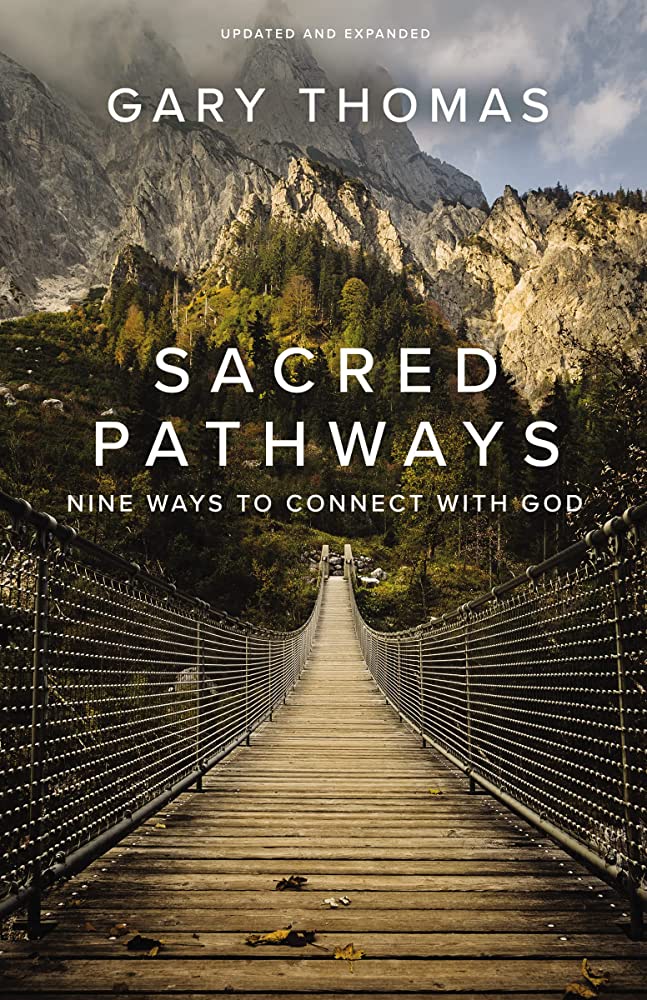II began writing this article at 3:30AM on my lanai. That’s not within my usual work hours; it was just one of those nights I couldn’t sleep. Occasionally, I have a night like that. I toss and turn, try various exercises, and count all sorts of farm animals, but nothing works. Perhaps you, dear reader, have had nights like that.
When I can’t sleep, it doesn’t work for me to keep lying in bed, staring at the ceiling, and trying harder to fall asleep. I need a change—like going out on my lanai to write—that often helps reset my mind and body, and I eventually fall asleep.
Sometimes, our relationships with God can feel this way, too. Our walks with God can feel stale; our prayers feel like they aren’t working; God feels far away. Ancient Christian saints referred to these times as the “Dark Nights of the Soul.” Perhaps you don’t feel that bleak, but you feel stuck in your relationship with God, like you are treading water instead of growing. In moments like these, sometimes our solution is to try harder—read the Bible more, pray more, and be a better Christian. But, if my sleepless nights are any indicator, trying harder perhaps isn’t the best medicine for a dark night.
In his book Sacred Pathways, author Gary Thomas tells a story about his friend. Thomas had always been taught one specific way to grow his relationship with God: through his morning quiet time. Good Christians, he’d been told, should read their Bible and pray first thing in the morning. Thomas isn’t alone; many pastors, leaders, and Christians affirm morning “quiet time” as the most important thing for our faith; as my college president said, “No Bible, no breakfast.” Thus, Thomas was shocked to discover that his good friend did her quiet time…after lunch! What horror! She would go up on her dormitory roof, bask in the sun after a nice meal, and connect with God. This wasn’t the strict quiet time Thomas had been taught. It wasn’t how people were supposed to connect with God. But this woman’s spiritual life was vibrant. If anything, her afternoon quiet time seemed particularly rich to him. If I recall the book correctly, Thomas eventually married this woman.
Over time, Thomas developed the belief that there are many ways to connect with God that don’t always have to look like the typical quiet time or any other strict way we think we might need to do our devotions or spiritual disciplines to grow our relationship with God. In Sacred Pathways, he argues that Christians have various ways, times, and practices through which they might naturally connect with God. Some, Thomas suggests, are Naturalists. Their prayers flow more naturally when they are walking by a river or sitting on their lanai at 3:30AM. Others he calls Sensates, those for whom the smells, bells, incense, and high church rituals strike a deep chord. Sensates feel the presence of God most with deep organ chords resonating in their souls. Traditionalists connect with God through creeds, liturgy, and rituals. Ascetics best connect with God when they are stuck in a closet with no distractions except a Bible. Caregivers, Activists, and more are somewhere in his book; you’d probably find yourself.

I found Thomas’ book to be liberating. His chapter on Naturalists felt as if he were writing a personal letter to me. Whenever I struggle in my spiritual life or when God feels far away, I find the nearest beautiful place. I feel closest to God when sitting by a still lake in the evening or hauling my sleepy body up a steep mountain early in the morning. When I’m in nature, immersed in God’s creation, I sense His presence. My broken prayers come back to life.
It was a freeing discovery to learn my quiet times could look different; that it was okay for me to simply talk to God on a morning walk instead of during a structured Bible-and prayer time every morning. The key point was not that I had my thirty minutes of structured devotional time; it was that I connected with the God who loved me, and I prioritized attentive time with Him, whatever it looked like on a given day. This is true, by the way, for our other relationships. You might not need the same structured space with a spouse or friend on a calendar—in fact, the routine might get stale! But you do need time—genuine, quality time— to build any relationship.
I haven’t entirely found a replacement for my mountains in Florida. But every morning, I have my devotions on my lanai, as long as it’s between 50 and 80 degrees. I usually read a chapter of the Old Testament in the morning and a chapter of the New Testament in the evening and spend some time praying. In other seasons, I’ve found different spiritual practices helpful. One Lent, I journaled every evening. I prayed Ignatius’ Examen Prayer every night for half a semester in seminary, a unique spiritual discipline focused on reflection and gratitude. For the past month, I’ve been reading a short Henri Nouwen daily devotional every morning, and I might try something different next. If your spiritual life feels dry, like a night when you can’t fall asleep, maybe it’s time to try a change. As it turns out, God has wired us in many ways!
Maybe this can be an invitation for you, too. How do you most naturally connect with God? What might it look like to incorporate that into time with Him? What new activity might you do to connect with God this week?
For further reading on incorporating different spiritual practices into our lives, check out Gary Thomas’ book, Sacred Pathways, or Adele Calhoun’s Spiritual disciplines Handbook.
by Pastor Steve Clark





